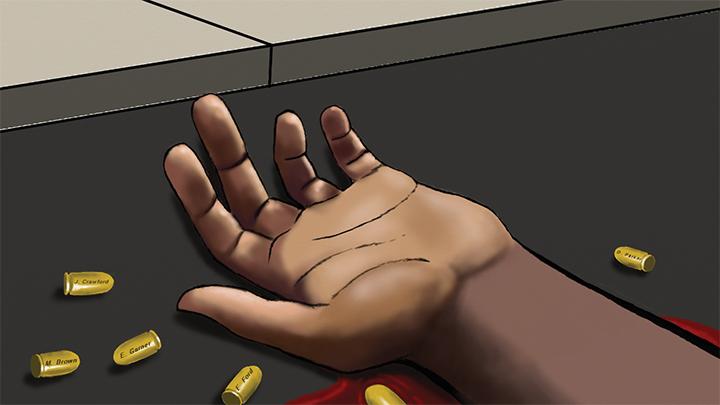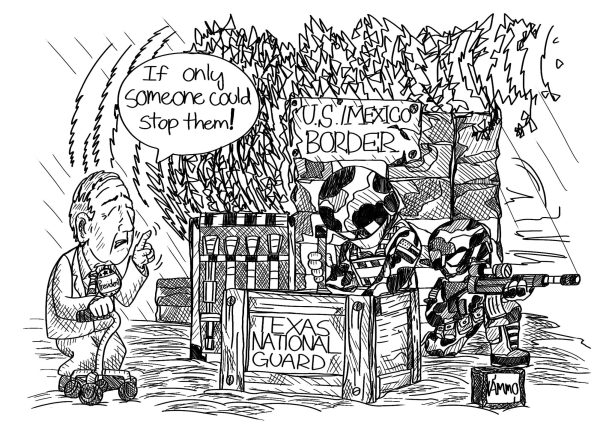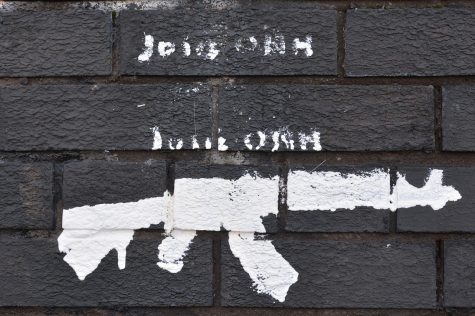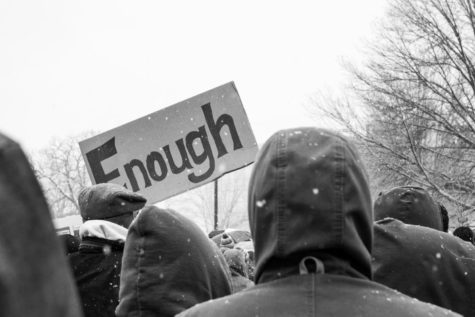Casualty of War: Shadow cast by Sept. 11 threatens civil liberties
September 9, 2014
On the 13th anniversary of the Sept. 11, 2001, attacks, we are once again reminded how much the world has changed. There are now phrases such as “post-9/11” or “the War on Terror.”
There are also laws and policies in place which remind the average citizen that nothing will ever be the same again in the United States of America.
Our most troubling reminder arrived a few weeks ago in the city of Ferguson, Missouri, when Michael Brown, an unarmed 18-year African-American man, was shot six times and killed by a white police officer.
The incident sparked civil unrest, renewed a national debate on race and forced us to recognize something we had previously ignored: the militarization of law enforcement and their perverse use of excessive force on people who were trying to protest against police brutality.
The Ferguson Police Department descended on its townspeople with a full range of military surplus gear, which it had acquired through a Pentagon program to supply equipment to local agencies. The “1033 program,” which was initially implemented in 1997, had shifted into full throttle after the declaration of the War on Terror by George Bush.
According to an article in The Atlantic in 2011, “Before 9/11, law enforcement possessed the primary responsibility for combating terrorism in the United States. Today, the military is at the tip of the anti-terrorism spear.” It went on to point out, “This shift appears to be permanent.”
The Center for Investigative Reporting did an extensive piece on the same issue in 2011, and what they found is startling: The federal government has given at least $34 billion to police agencies to buy military-style equipment like drones, grenade launchers, body armor and tanks. Many community agencies have also purchased assault rifles and military grade weapons.
The militarization of the local police force doesn’t just intimidate communities where SWAT teams in full tactical gear show up at doors of suspects. It also creates the impression of a police state, where unnervingly, our First Amendment rights are under attack.
During the Ferguson protests, several journalists were arrested or detained because they were reporting on the excessive force being used to control the crowd. The photos of tanks and clouds of tear gas printed on the front pages of almost every major newspaper resembled Tahrir Square or Beirut.
Several questions arise when a nation is faced with such abuse of power by the very agencies whose motto is “To protect and to serve.”
When tanks roll down the streets of American cities, followed by officers dressed in combat gear and carrying assault rifles, we wonder how much is too much when it comes to keeping the peace? We also wonder, how long before we become disturbingly numb to the sight of a militarized police force in our neighborhoods?
The American Civil Liberties Union presented a closer look at the issue in an extensive report in June. It concluded that this police militarization “unfairly impacts people of color and undermines individual liberties, and it has been allowed to happen in the absence of any meaningful public discussion.”
Though the tragedy of the Michael Brown shooting and the violence that followed is undeniable, the national conversation it ignited is finally shedding light on issues Americans face today. The fact that race and ethnic discrimination is still alive and well is a much-felt reality for those affected by it the most.
It also brings to light the slow and deliberate eradication of our First Amendment rights that is forcing an entire generation to keep quiet, to not protest, to not question the powers at work in our justice and political systems.
The attention that Ferguson received is bringing about change, although minor, in some areas of the country. Last month, the city of San Jose, which was scheduled to receive millions of dollars of military equipment for its police force, asked that the process be halted and is reviewing its request.
The Obama administration also announced an extensive review of the 1033 program and has asked all agencies to re-examine policies in place that could affect the basic rights of the American people.
Law enforcement agencies need to re-visit their purpose for existing in the first place, which is to serve communities and act in the best interest of its citizens. They also need to realize that the American people will not stand for having their First Amendments rights revoked by threats and intimidation.
For the first time in several decades a generation, the Millennials, has the opportunity to halt a systemic violation of our constitutional rights, by educating ourselves of all the issues that we face today, by participating in the democratic process and being fully aware of the causes which affect our future, our individual liberties and above all our humanity.
















































































